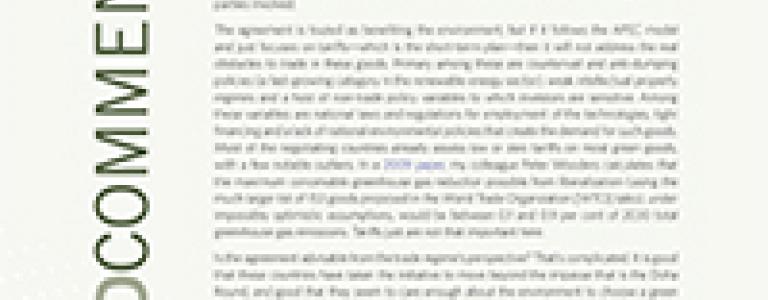The Green Goods Agreement: Neither green nor good?
In January 2014, 14 World Trade Organization members met on the sideline of a World Economic Forum meeting in Davos to launch talks aimed at lowering barriers to trade in environmental goods.
This commentary critically assesses the chances that the agreement will achieve significant environmental impacts and argues that the institutional needs of such an agreement are challenging in ways that the parties do not seem to appreciate.
You might also be interested in
Agreement on Climate Change, Trade and Sustainability: A landmark pact for trade and sustainability
The ACCTS pact, signed by Costa Rica, Iceland, New Zealand, and Switzerland, aligns trade and environmental policies, tackling fossil fuel subsidies, eco-labels, and green trade.
Addressing Carbon Leakage: A toolkit
As countries adopt ambitious climate policies, this toolkit examines strategies to prevent carbon leakage—when production and emissions shift to nations with weaker climate policies—and explores the trade-offs of each approach.
Agricultural Subsidies: A case for Uganda
Jane Nalunga and Jonathan Lubega examine Uganda's agricultural subsidies, offering recommendations for redesigning them to foster sustainability.
Agricultural Subsidies in India: A critical balancing act
Ranja Sengupta explores the socio-economic impact of agricultural subsidies in India and underscores the need for effective policy adjustments.
